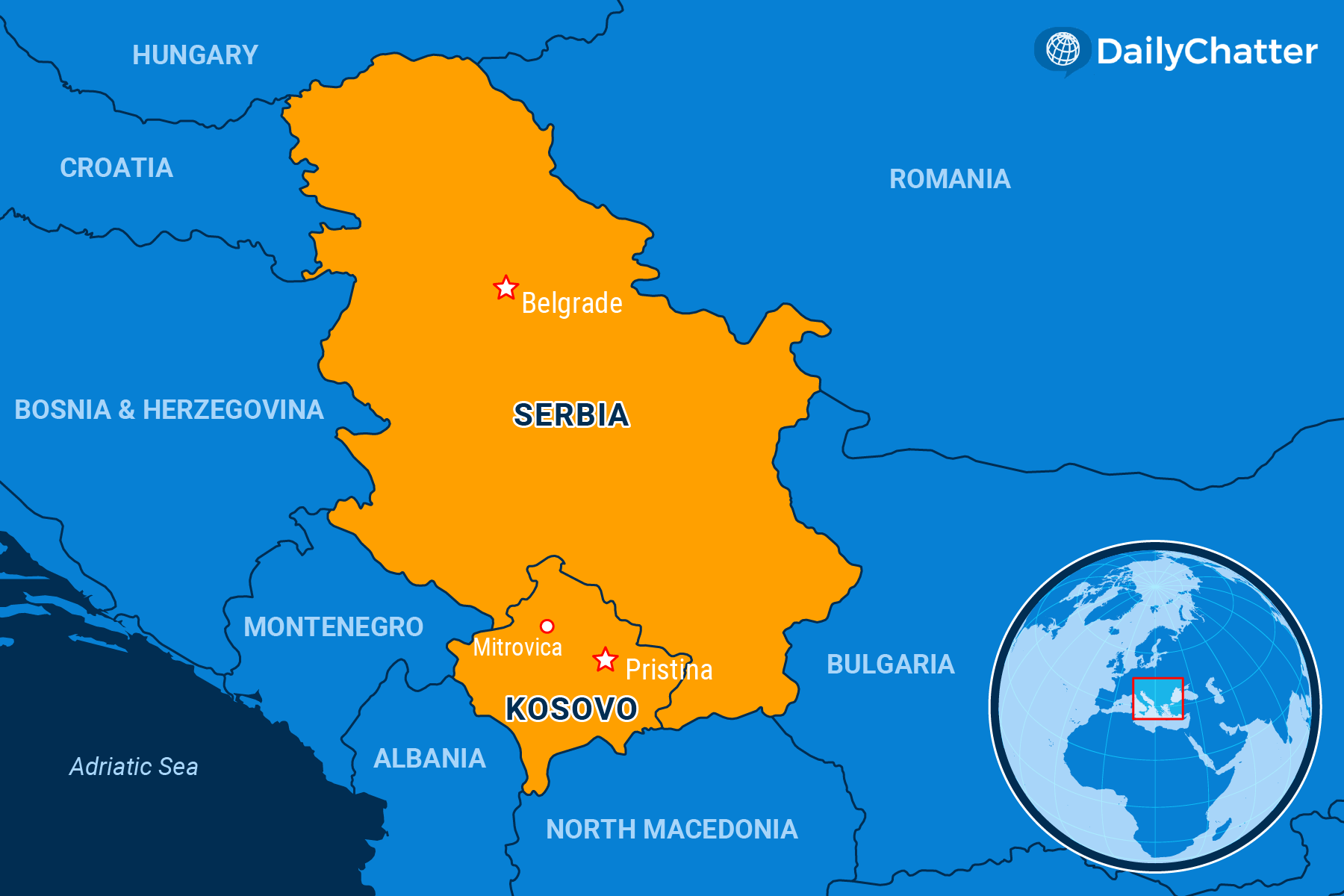
The World Today for February 06, 2023
NEED TO KNOW
Straddling a Divide
SERBIA/ KOSOVO

Late last year, Serbia and Kosovo, the former Serbian territory whose majority ethnic Albanian citizens declared independence in 2008 less than a decade after a bloody war to achieve just that, looked as if they were on the verge of conflict again, the Economist wrote.
The flare-up of tensions stemmed from officials in the Kosovar capital of Pristina requiring the minority ethnic Serbs who live in the tiny country to obtain Kosovar car license plates and IDs, the Financial Times reported. Rejecting the authority of Pristina, ethnic Serbs in Kosovo set up roadblocks in protest. Serbia, in turn, deployed troops to its border with Kosovo to defend the ethnic Serbs in case violence erupted, the BBC added.
The timing of the Balkan crisis was curious as Russia immediately backed Serbian efforts to protect ethnic Serbs in Kosovo, Reuters reported. Russian President Vladimir Putin has cited NATO’s attack on Serbia in 1999 and Kosovo’s breakaway from Serbia as reasons why Russia invaded the former Soviet republic of Georgia, annexed the Ukrainian territory of the Crimean Peninsula and, later, moved to conquer Ukraine, Balkan Insight explained.
Russia, incidentally, also maintains close ties with Republika Srpska, the Serbian-controlled part of Bosnia-Herzegovina whose leaders recently gave Putin their highest honor, the Order of the Republika Srpska, for his “patriotic concern and love,” according to the Associated Press.
Fighting in the Balkans could distract the West’s efforts to support Ukraine in its fight against Russia, Bloomberg Opinion editors argued. That’s why the US quickly offered economic and diplomatic support to Serbian leaders in Belgrade if they joined international sanctions against Russia, Euronews wrote, a move clearly aimed at curbing Russian influence in the country. Serbian President Aleksandar Vucic has opposed sanctions.
Since then, the US has held negotiations between Serbs and Kosovars to defuse the situation and develop policies that would help ethnic Serbs in Kosovo, too. For example, the US is urging Kosovo to accept the controversial “Association of ethnic Serb-majority Municipalities” (ASM) – even as it reassures Pristina that it won’t back a Serb republic within its borders, as exists in Bosnia, the Associated Press noted.
Meanwhile, Serb Foreign Minister Ivica Dacic recently hinted that his government is considering adopting Russian sanctions, Euractiv reported.
Serbian Prime Minister Ana Brnabic recently referred to “Russian aggression against Ukraine,” frank rhetoric that Serbia has previously eschewed. And Serbs have reacted in outrage to the open recruitment by the Wagner Group – Russian mercenaries – in Serbia itself for the fight in Ukraine, the BBC reported.
All this reflects how Serbia has been attempting to benefit from improved relations with the US, the European Union, and Russia – but now is under pressure to choose a side, argued Carnegie Europe. Serbia imports all of its oil and gas from Russia. The countries share the Orthodox Christian faith. But the EU and its members are the biggest investors in the country. Serbia is on track to joining the EU, too, an arguably vital step in its political maturation.
Whichever side Serbia chooses could become a fateful decision for Serbs and Europe at large.
To read the full edition and support independent journalism, join our community of informed readers and subscribe today!
Not already a subscriber?
If you would like to receive DailyChatter directly to your inbox each morning, subscribe below with a free two-week trial.
Support journalism that’s independent, non-partisan, and fair.
If you are a student or faculty with a valid school email, you can sign up for a FREE student subscription or faculty subscription.
Questions? Write to us at [email protected].
